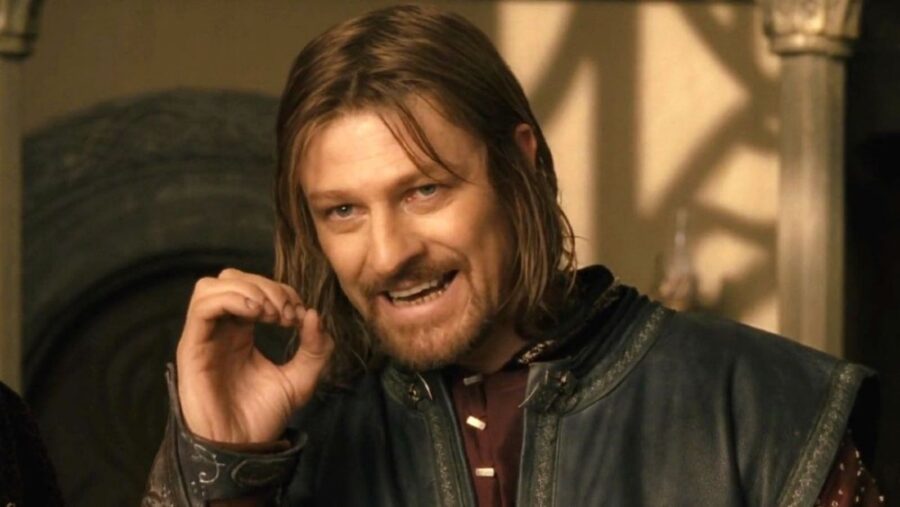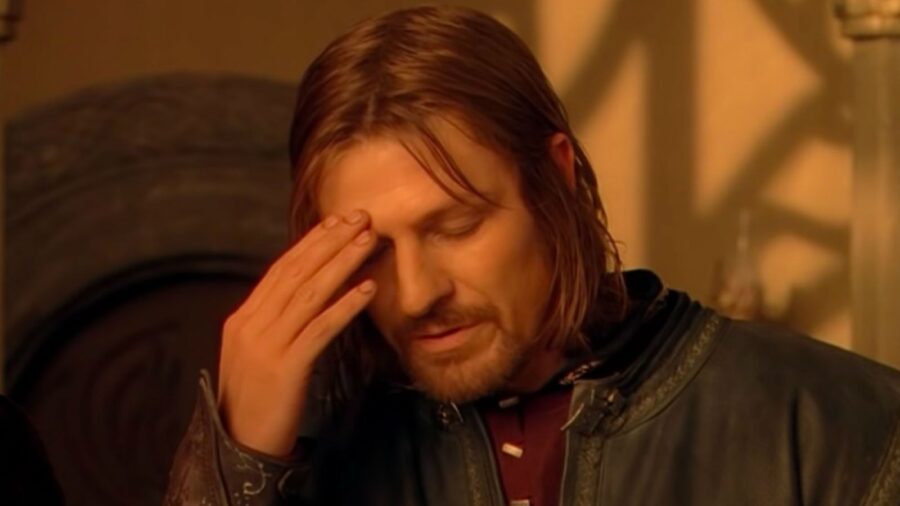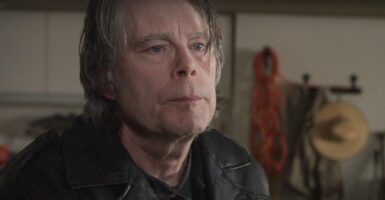The Lord Of The Rings Biggest Mistake Was Cutting So Much Of One Character

Of all the nine members of the Fellowship of the Ring, the one who endured the worst changes and the biggest omissions in Peter Jackson’s The Lord of the Rings film trilogy was Sean Bean’s Boromir. As a result of the changes, Boromir is portrayed in a much less sympathetic light than he is in the books. I’d go so far as to argue that Sean Bean was the last actor in the world who should’ve been cast as the Captain of the White Tower.
Sean Bean’s Boromir should’ve been in more of The Lord of the Rings: The Fellowship of the Ring, and he should’ve been shown in a more sympathetic light.
Just by comparing the extended edition of The Lord of the Rings: The Fellowship of the Ring to the theatrical version, it’s clear that Boromir comes off as much more likable and noble in the longer cut. The moments cut from the the theatrical version coincide so often with Sean Bean’s screen time that when you start noticing it, it’s tough to not wonder if his character is why those moments were cut.
When the Fellowship argues over whether to continue climbing the snow-swept Caradhras or to head for Moria, Boromir’s single sentence, “this will be the death of the Hobbits!” was cut from the theatrical version. Most of Boromir’s time-fighting in Balin’s Tomb is cut, as is a significant chunk of his last stand against the Uruk-hai.

A scene in which the Lord of the Rings’ Fellowship is forced to wait in tree stands as their presence in Lothlórien is debated was cut, and in it Boromir is the only one to reach out to Frodo and tell him to not feel guilty for Gandalf’s death. Later in another cut scene, before Frodo leaves the Fellowship, Boromir and Aragorn have a debate about The One Ring, and for once, it’s Aragorn who comes off angrier and even pettier.
One of the things I’ve never understood is the whole “Sean Bean always dies” thing because not only are there big name actors who die a lot more often, but death isn’t the “always” I remember when it comes to Bean.
I think, in most likelihood, these moments were cut largely because of the focus on Boromir, but not because the Lord of the Rings filmmakers were at all unhappy with Sean Bean’s performance. My guess is that–faced with having to cut out a good percentage of Fellowship–Jackson and co. went after the Boromir scenes first because he was the only member of the group who would not be appearing in the other films.
As a result, I would argue what we got from Sean Bean’s character was a shadow of what we could’ve.
If you’ve read the source material, you know Boromir is portrayed as one of the most powerful and capable warriors in The Lord of the Rings. In the novel, the heroes are attacked by a large pack of Wargs on their way to Moria, and it’s written that Aragorn and Boromir are pretty much neck-and-neck regarding who gets more kills. Boromir isn’t the nicest guy necessarily, but he’s noble and brave until The One Ring corrupts him.

But because of the changes made to the character for The Lord of the Rings: The Fellowship of the Ring, Boromir’s fall to the power of The One Ring doesn’t mean as much. As soon as we’re introduced to his character–after that first shot of him arriving at Rivendell–he refuses to replace the shards of Narsil and shrinks under Aragorn’s stare. It makes him come off as petty, rude, untrustworthy, and even cowardly.
During the Council of Elrond, he seems twitchy, like he missed his meds that morning. Gandalf hints that Boromir will betray Frodo with all the subtlety of a Balrog, and when Boromir meets Galadriel, she looks at him like he’s already stolen the Ring.
Until his last stand, he isn’t depicted as being particularly brave, noble, courageous, or even particularly good at fighting.
In other words, as soon as Boromir shows up in The Lord of the Rings: The Fellowship of the Ring, everything about him screams, “I’M THE BACKSTABBER! IT’S ME!” and so his eventual betrayal doesn’t mean as much. The Boromir of the books is a good man who is corrupted by the One Ring, but the Boromir of the movie is–for most of the film–a bad man who the One Ring doesn’t corrupt, it just aims him in a different direction.

Which, I suspect, is why Sean Bean was hired to appear in The Lord of the Rings: The Fellowship of the Ring in the first place.
One of the things I’ve never understood is the whole “Sean Bean always dies” thing because not only are there big name actors who die a lot more often, but death isn’t the “always” I remember when it comes to Bean.
What I remember is that, particularly when it came to his work in the ’90s, Bean was always the traitor. He was always playing someone who started off as a good guy but went bad (GoldenEye, National Treasure), someone defined by being completely incompetent (The Field), or a little bit of both (Ronin).
That little bit of both is exactly what we got with the Boromir of The Lord of the Rings: The Fellowship of the Ring. Until his last stand, he isn’t depicted as being particularly brave, noble, courageous, or even particularly good at fighting.
Peter Jackson’s The Lord of the Rings trilogy is wonderful, but Boromir was done dirty.












